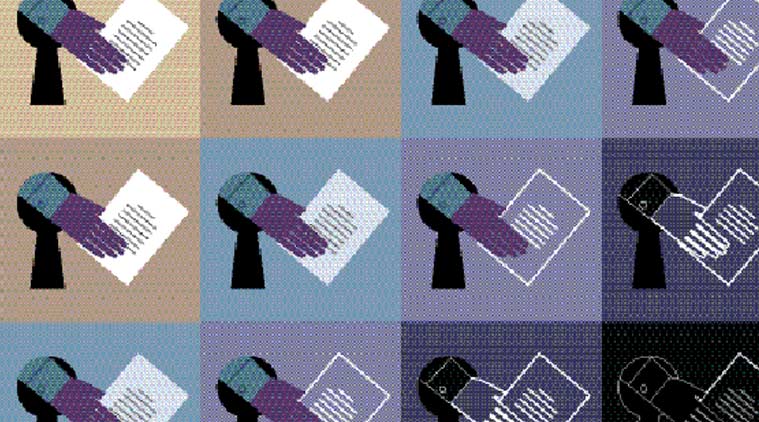Why we are boycotting CIC’s annual RTI convention
Reportedly, the CIC wanted to invite activists and users from around the country but was prevented from doing so by the government.
 Reportedly, the CIC wanted to invite activists and users from around the country but was prevented from doing so by the government.
Reportedly, the CIC wanted to invite activists and users from around the country but was prevented from doing so by the government.
The Modi government came in with a lot of rhetoric about shortcomings in transparency and complaints of corruption in the previous government. Given the strong mandate that they received, it is expected that they would act quickly and decisively to put in second-generation reforms ensuring greater transparency, accountability, and high levels of people’s participation. As opposition leaders, many of the ministers in the current government had made statements in favour of strong legislation for the Lokpal, Whistleblower Protection and Grievance Redress. They had reiterated their support for a transparency regime and demanded better implementation of the RTI law.
Unfortunately, 16 months of a government with a clear majority has seen little or no action in these areas. This is surprising for two reasons. Unlike their opposition to the social sector and rights-based laws in that sphere, transparency and accountability is supposed to be part of the ideological paradigm of this government. The other factor is that any progressive action on these fronts would have been widely welcomed and could not have been opposed by any party even in the Rajya Sabha where this government needs to build a consensus to legislate. Unfortunately, the government has failed to operationalise the Whistleblower and Lokpal laws despite them being passes by Parliament. The non-controversial Grievance Redress Bill has also been forgotten. Most worrying has been a change in atmosphere where free speech, open participation and consultative processes have faced the chilling winds of a centralised regime using “security” as a justification for exclusive governance.
It is in this context that the entirely new way of dealing with the annual CIC convention becomes even more disturbing. What must be opposed here and now is the undermining of the independent character of the commission and the seeming assertion of the government that it can restrict participation in processes and events that must be open to all segments of concerned people. The RTI has been a breath of fresh air in a moribund, colonial, structure of administration. People have come forth in millions, laid down their lives, crafted and protected the law, and driven it despite opposition from all those in power. It cannot be taken away from us.
The Central Information Commission is holding its annual convention on the 16th and 17th of October 2015. This year marks a decade of the Right to Information law in India. However, at this significant juncture, civil society participation has been severely restricted and only seven people from the RTI movement have been invited to attend the convention. The Right to Information law came from the experiences of ordinary people, and it was a grassroots struggle that led to the articulation of the demand for information. Sustained public action by large numbers of the poor and the involvement of civil society led to the framing of this fundamental law. The contribution of civil society has been publically acknowledged, including by several Information Commissioners.
In an unprecedented move, the Intelligence Bureau (IB) undertook background checks and verification of RTI activists across the country. Many were sent an email that they were not being invited to the convention due to “security reasons”. Every year since 2006, the Prime Minister of the day has addressed the convention and there have never been these kinds of restrictive measures. In every single convention (barring last year when no convention was held) activists and RTI users from across the country have had the chance to participate and engage with government to further strengthen the RTI Act. We do not understand why this year these intelligence and security checks were felt to be necessary and were further used as justifications to restrict civil society participation.
[related-post]
Reportedly, the CIC wanted to invite activists and users from around the country but was prevented from doing so by the government. If the reports are correct, this interference of the government severely hampers the independence and freedom of the CIC to engage with people at large. To protest against the arbitrary and undemocratic measures attempting to restrict people’s participation and to shut down an important forum of engagement between people, the commissions, and the government, we the undersigned have decided to boycott the Prime Minister’s address at the convention. Some of us who have been invited to speak at technical sessions will participate in these as we appreciate the CIC’s initiative to engage with civil society and people’s movements to improve transparency and accountability in the government.
At the national level public hearing organized by the National Campaign for the People’s Right to Information (NCPRI) in Delhi on 15th October, 2015 to celebrate ten years of the RTI law and discuss the challenges and future direction, the following was resolved unanimously by the hundreds of people attending the public hearing:
“The NCPRI is deeply distressed to learn that the National RTI convention to be organised by the Central Information Commission on the 16th and 17th of October 2015 has become an exclusive affair which is being restricted by the central government under “security” concerns.
We strongly believe that the RTI convention should set an example of openness and participation. Even for this convention, the NCPRI was asked to participate, to provide names of activists from different states and contribute to an exhibition. We were being encouraged to include as many people and experiences as possible. However, we have come to learn that as the Prime Minister has decided to attend, the number of participants have been severely restricted. Some people who were invited have been informed that they will not be allowed into the inaugural session. Even the names recommended by the State Information Commissions have been rejected reportedly because of so-called “security concerns”. Our contribution to the exhibition has not been taken.
With the clear understanding that this process runs counter to transparency, accountability and participation, and threatens the independence and mandate of the CIC. We have resolved that the members of the NCPRI who have received invitations (and have not as yet been uninvited) will not attend the inaugural session. The NCPRI will use the RTI to probe the sequence of events and will fight to establish the independence and pro-people democratic mandate of the CIC. The RTI is a people’s law and we will use RTI to save RTI.
We want to make it clear that we do this to establish engagement with a democratically elected government and hope that the central government will reach out to engage with the millions of RTI users who are playing an unpaid and vital role of establishing transparency and accountability and strengthening India’s democratic character.”
- 01
- 02
- 03
- 04
- 05































